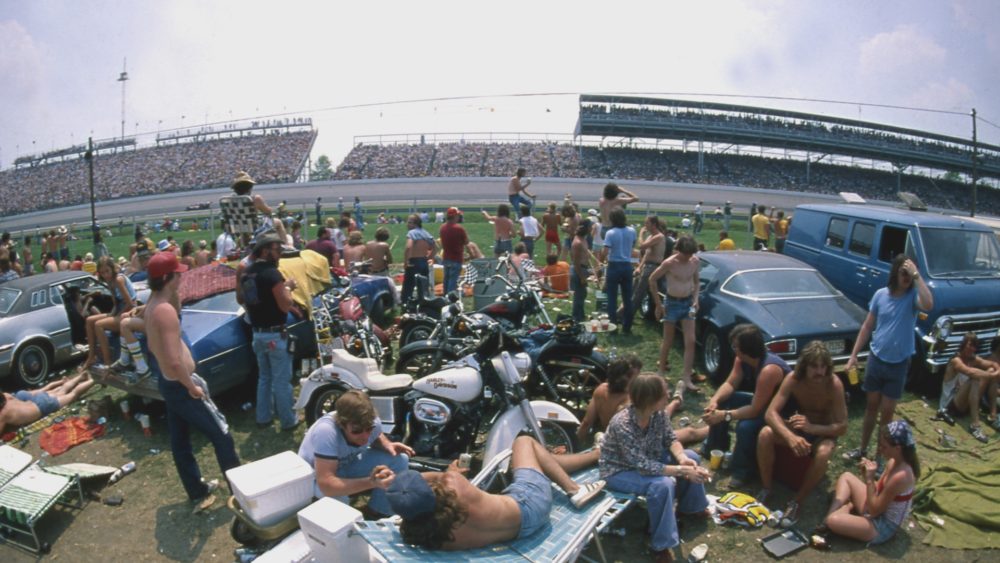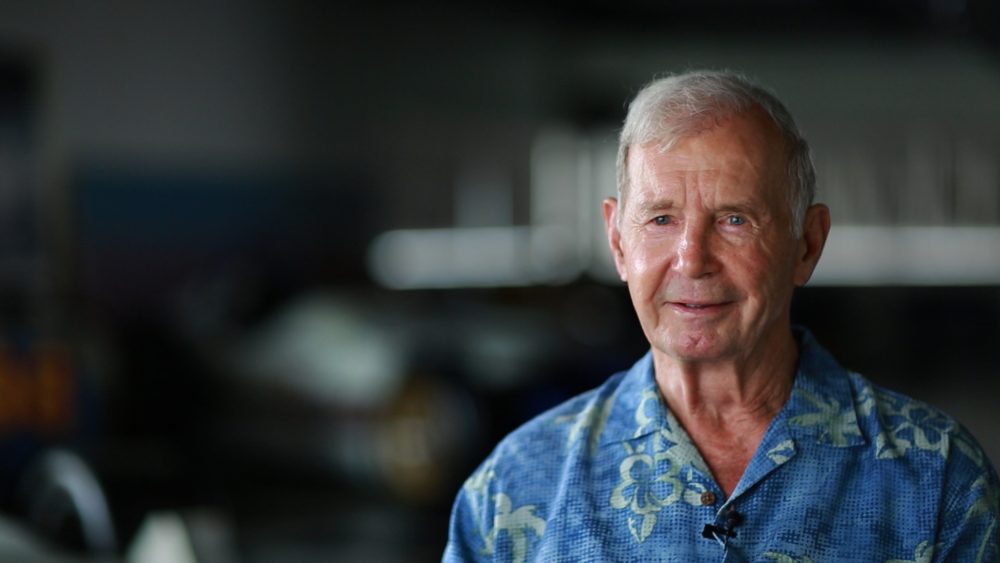A crash course in racing safety
Documentary film highlights the history of emergency rescue and medical care within the sport of car racing.
Gunter Shaldach’s red ultra-fast race car came around the curve at speeds topping 160 MPH. It was about this time he realized that his brakes weren’t functioning. Shaldach’s car smashed the driver directly in front of him, and then careens out of control towards the race track barrier. Luckily there is some loose debris that helps to slow the car before the impact with fence. Traveling well over 100 MPH still, Shaldach impacts the barrier headfirst and the car flips over the fence.
The crowd is stunned and the announcers shout with excited voices. How could anyone have survived a crash like that?
“It wasn’t that big of deal,” Shaldach says of the 2011 Grand-AM Road America Race crash eight years after the event. “I just got out of my car and walked away.”
If Shaldach’s crash had happened 30 years earlier, at the least he would have had shattered every single one of the bones in his lower legs and suffered a major concussion. However, due to the improvements in race car emergency rescue and critical medical care over the past five decades, Shaldach was able to walk away unscathed from the jaw-dropping crash.
Rapid Response
Rapid Response is a new documentary film from directors and executive producers Michael William and Miles Roger Hinze. It chronicles the life work of two doctors (and many others who helped them) Dr. Stephen Olvey and orthopedic surgeon Dr. Terry Trammell as they innovate life saving techniques to improve high-speed racing safety.
The documentary arrives in select theaters on September 6, 2019. The film is unrated, however there are some intense scenes of car crashes. The documentary does an excellent job of capturing the violence of some of the most horrific crashes in racing history without exploiting the more gory elements of the death and destruction that ensued.
In addition to the in-depth interviews with Trammell and Olvey, Rapid Response also hears about the car crashes from hall-of-fame drivers as well. The film features interviews with current and former race car drivers, including those who dared to take the track during the darker days of the sport like Mario Andretti, Bobby Unser, Al Unser, Parnelli Jones, Rick Mears, Helio Castroneves, Tony Kanaan, and Chip Ganassi.
Dr. Stephen Olvey
Beginning in 1966, Dr. Stephen Olvey (Associate Professor of clinical Neurology and Neurosurgery, University of Miami Miller School of Medicine) embarked on a journey that would define his career: to pioneer a team of doctors and track safety specialists who specialize in racing safety. His work fundamentally altered the history of motorsports. Rapid Response is the visualization of his memoir, Rapid Response: My Inside Story as a motor racing life saver.
It is one thing to read text on a page, it is wholly different when you witness the actual footage of some of the defining moments of his career.
Death and injury was an expected part of a race car driver’s life

In the early days of car racing, getting hurt or even killed was job hazard that drivers accepted. “Up until the 1960’s… drivers were dying at an alarming rate,” says Olvey.
Legendary racer and 1963 Indianapolis 500 winner, Parnelli Jones, gives a heartfelt description of his most difficult time in racing, the 1964 Indianapolis 500. In the immediate aftermath of a major racing fatality, Jones could see that a tremendous crash had taken place. Two gasoline powered cars collided and a huge orange fireball exploded. The scene was obscured by thick black smoke, but it was obvious that a tragedy had taken place.

“I remember distantly coming of out of turn two…. and it looked like the whole grandstand was on fire,” says Jones. “Honest to God, if there had been an exit at turn three I would have taken it, because I didn’t want to accept what I was goin’ to see when I came around the next turn.”
Listening to Jones describe the scene, while the high-def images of the crash are displayed on screen alongside an excellently crafted musical score create a surreal impression that most documentary films strive for but never reach.
Dr. Terry Tramell
Terry Trammell, M.D., serves as a safety consultant to INDYCAR and is a longtime member of the INDYCAR Safety Team.
Dr. Trammell has been active in providing trackside medical care since 1973, including serving as orthopedic consultant to the Indianapolis Motor Speedway and director of medical services for CART. He is a founding member of the International Council of Motorsports Science and a founding fellow of the FIA Institute for Motorsport Safety. Dr. Trammell is a sought-after lecturer on spinal injuries and conditions, and has authored numerous articles published in professional journals.
